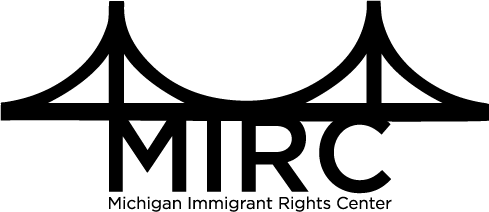Immigrant Children's Health Improvement Act (ICHIA) Policy
Download the following resources to share with your community:
- ICHIA Policy Explainer (English)
- ICHIA Explicador de políticas (Español)
For many years, lawfully residing immigrants could not access Medicaid and the Children’s Health Insurance Program (CHIP) until they had been in the United State for five years. Starting August 1, 2024 Michigan will end the five-year waiting period for lawfully residing children and pregnant people.
Children up to 19 can register for CHIP and up to 21 can register for Medicaid. Pregnant people are also covered, including a 12-month postpartum period.
Eligible parties hoping to enroll can start with Michigan’s MIBRIDGES benefit-issuing website.
Many immigration statuses are eligible:
- Lawful Permanent Residents and applicants for adjustment of status with an approved visa and their family members granted status through the family unity program
- Refugees, asylees, and asylum applicants
- Applicants and people granted withholding of deportation or removal, including those granted relief under the Convention Against Torture.
- Cuban/Haitian entrants
- Iraqi & Afghan Special Immigrants
- Temporary Protected Status holders
- Deferred Enforced Departure holders
- People in deferred action status other than “DACA” (Deferred Action for Childhood Arrivals)
- People who have or have applied to USCIS for Special Immigrant Juvenile Status
- Certain survivors of human trafficking
- People with eligibility letters from the Office on Trafficking in Persons
- Trafficking visa holders and derivative beneficiaries or those with approved prima facie case determination
- People who have been granted Continued Presence to support a prosecution
- Certain survivors of domestic violence (under VAWA)
- Approved VAWA self petition or prima facie case determination and their parents or children
- Approved application for VAWA cancellation of removal and their parents or children
- Certain victims of serious crimes
- U visa holders or those with approved bona fide determination deferred action
- Most parolees (where parole valid for at least 1 year)
- Certain longtime residents who have employment authorization, such as NACARA Cancellation applicants, and applicants for 245 adjustment, applicants for registration based on residence since 1972, and people under orders of supervision
- Citizens of Micronesia, the Marshall Islands, and Palau
- People with nonimmigrant visas who have not violated the terms of their status (like students, tourists, and visitors on business) (note: it is especially important that people in nonimmigrant statuses work with an attorney to determine whether using benefits may impact their status)
- People lawfully present in the Commonwealth of the Northern Mariana Islands or the American Samoa
If you have questions about using public benefits and how this may impact your immigration status, please consult these resources on public charge.
To learn more about the ICHIA policy, visit: https://www.nilc.org/issues/health-care/lawfully-residing-medicaid-chip/

